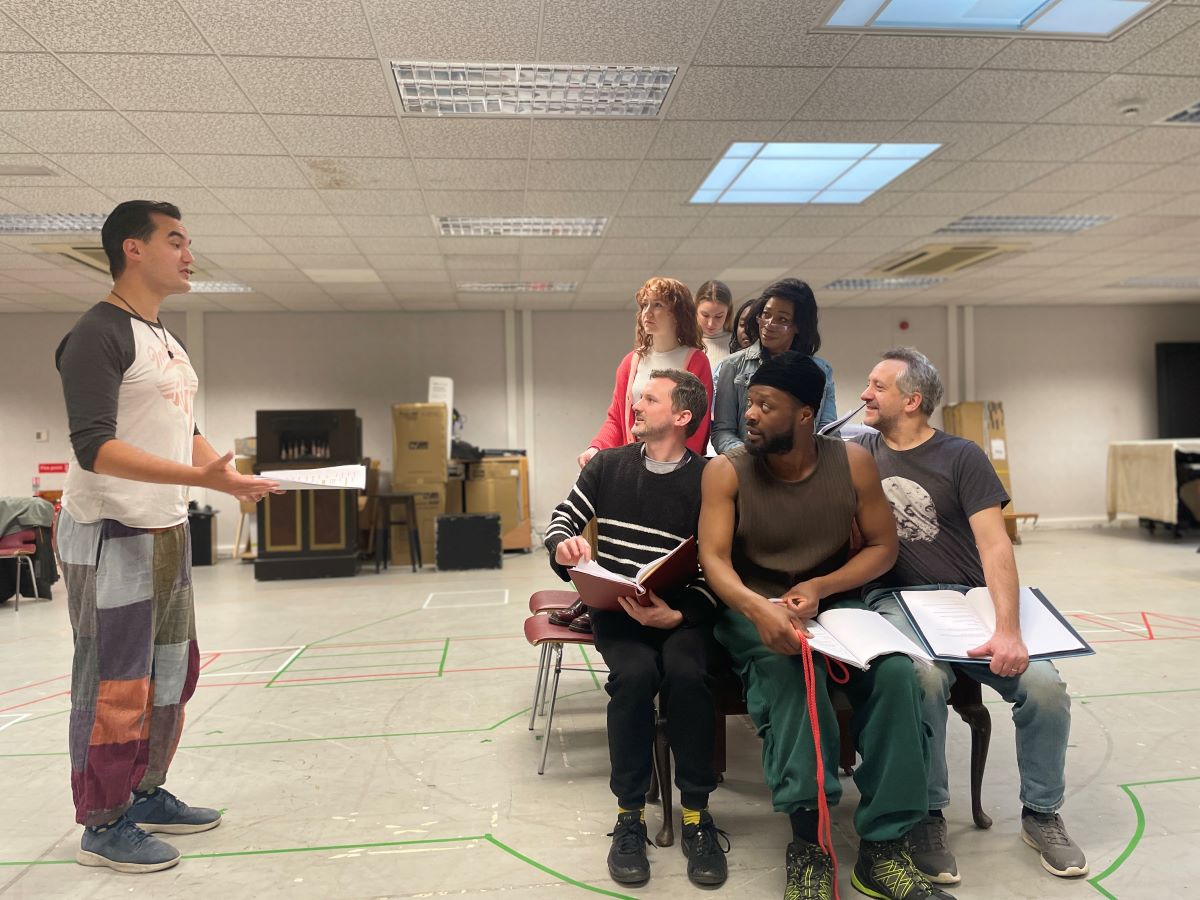Award-winning Scottish playwright Frances Poet is bringing her new adaptation of Jane Austen’s beloved Sense and Sensibility to the Pitlochry Festival Theatre.
We caught up with her amid rehearsals to hear what life’s been like working on the play and what audiences can expect from the show.
When did you first read Sense and Sensibility, what are your first memories of it?
I was a teenager. I remember loving the novel, identifying strongly with passionate Marianne, one of the two sister protagonists, and feeling heartbroken by the betrayal of the man she loves. But most of my memories of encountering the novel for the first time have been supplanted by the experience of watching Emma Thompson’s wonderful film not long after. I watched it at the cinema with my friend and I vividly remember her audibly gasping when Greg Wise’s devastatingly handsome Willoughby arrived on screen, wet from the rain, and swooped the injured Marianne up and carried her to safety.
Have you always been an Austen fan?
I read my first Austen at age 11 when my dad offered me £5 to read his favourite novel, Pride and Prejudice. I loved the book so much I felt guilty taking the fiver from him but not guilty enough not to. The big revelation for me was that this author, writing hundreds of years ago, was making me laugh with her observations of characters I felt I recognised. Suddenly the past felt like it was yesterday, quite a new feeling for me at that age.
Austen is so perceptive about human nature, whether she is laughing at a person or commiserating with them, and over the next few years I couldn’t get enough of her work. Having read the novels in quite quick succession, they remained unopened for a couple of decades until Elizabeth Newman asked me if I would like to adapt Sense and Sensibility for Pitlochry Festival Theatre.
Rereading the novel was like time travelling back to my teens but back then I was all Marianne- romance, idealism, blinkered and judgemental- now I was bringing different eyes to it. I felt much more aligned with Eleanor and the quiet strength with which she bears her heartbreak. I think I realised then what a genius Austen really is, to write novels that endure in the way they have and that are rich enough to bring new insights on each encounter.
How are preparations going for the show?
Although I was lucky enough to have a Sound Stage audio play, Sophia, produced by Pitlochry Festival Theatre during the pandemic, this is my first time working with them in person and the repertory model is a very different way of working from anything I’ve experienced before. Aspects you might normally be involved in like casting the actors just isn’t possible in a process that involves three directors collaborating on bringing together the best possible ensemble for three productions. And rehearsals are staggered in such a way that work in short bursts from a much earlier starting point which is a little discombobulating but it does give you some space to reflect on the play, which with a new piece of writing can be helpful and the whole arrangement allows you to watch the actors in awe of their versatility and dedication.
Has there been anything particularly tricky or difficult to capture in the adaptation?
You don’t have the benefit of space and time with a stage adaptation. There’s a lot of story to squeeze in, a lot of plotting elements you need to establish in the least clunky way possible and lots of character detail necessarily gets lost. There are 26 significant characters in the novel which I have had to distil into a cast of eight playing 13. Some 300 pages are condensed into two hours of stage time. You have to kill a lot of darlings.

The cast of Sense and Sensibility. Credit: Alicia Walker
But Sense and Sensibility is a novel, as the title would suggest, that plays with symmetry, comparing two sisters with very different dispositions, one passionate and one restrained. The mirroring of their experiences in the novel is quite marked but, for the sake of verisimilitude, the similar challenges and heartbreaks the sisters face happen over a long timescale. One of the joys of adapting the novel for the stage and its more heightened context has been to draw out the mirroring so their respective heartbreaks happen at almost the same moment and Austen’s exploration of their different responses is really up front and centre. Adapting a classic is a process of distillation and for every loss, there’s the silver lining that the core elements of the original become intensified and more vivid.
What do you love about adapting the classics?
Adapting a classic feels like a form of co-writing. Generally I prefer to write alone, having been involved in a couple of shared projects where it felt like we were both getting half the fee for twice the work but adapting a classic is the most glorious collaboration. And not just because they can’t talk back.
You are working with somebody whose characters and world-building are exceptional and have endured the test of time. They have given you a map with all the important beats, dramatic and comedic, so you can do your best work. And you don’t even have to share the commission fee.
What do you hope audiences take away from the show?
I hope they have a bloody brilliant night out first and foremost. I hope some ask themselves, as I have always done as a reader, whether they are a Marianne or a Elinor. (The Artistic Director, Elizabeth Newman says we are all a little bit of both.)
I hope one or two might gasp at our handsome Willoughby as my friend did in the cinema. I hope that all enjoy the RomCom elements while appreciating as I have done, on returning to the novel as an adult, post pandemic, that this is a story about how women deal with bereavement and heartbreak in a world in which they have very little control. I hope our audience go home entertained, full of laughter, love and smiles and appreciating Austen’s incredible talent for recognising the best and worst of ourselves.
What does a typical day look like for you at the moment?
I am often on a 6.47am train to Pitlochry from Glasgow. ScotRail clearly haven’t consulted with the theatre as the timetable has me arriving either an hour early or an hour late for rehearsals so I’m lamenting the missing hour in bed. This is the first time I’ve been in the rehearsal room since the first week back in March though I’ve done considerable rewrites in that time in response to feedback during the process.
I have a bit of time after rehearsals to have a conflab with the director, Adam Nichol sbefore catching my train home and getting on with some admin I have to do for my current teaching job with the University of St Andrews. This time ScotRail gest it just right as I arrive into Queens Street station at the same time as my daughter finishes her RSNO choir rehearsal close by so we travel home together. Then it’s bed and do the whole thing again. By Wednesday I’ll be exhausted and delighted to return to my usual anti-social existence of lounging about in comfy clothes working on a new play commission from home.
Sense and Sensibility runs at Pitlochry Festival Theatre from 21 June – 27 September.
Read more of our Book news here.
Subscribe to read the latest issue of Scottish Field.
TAGS


